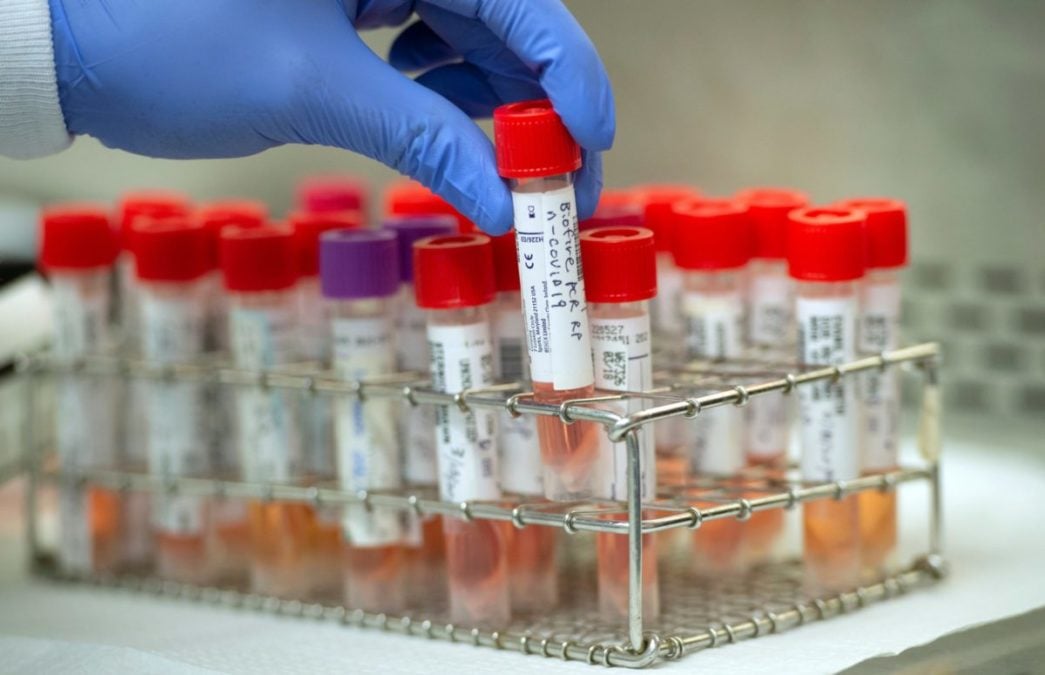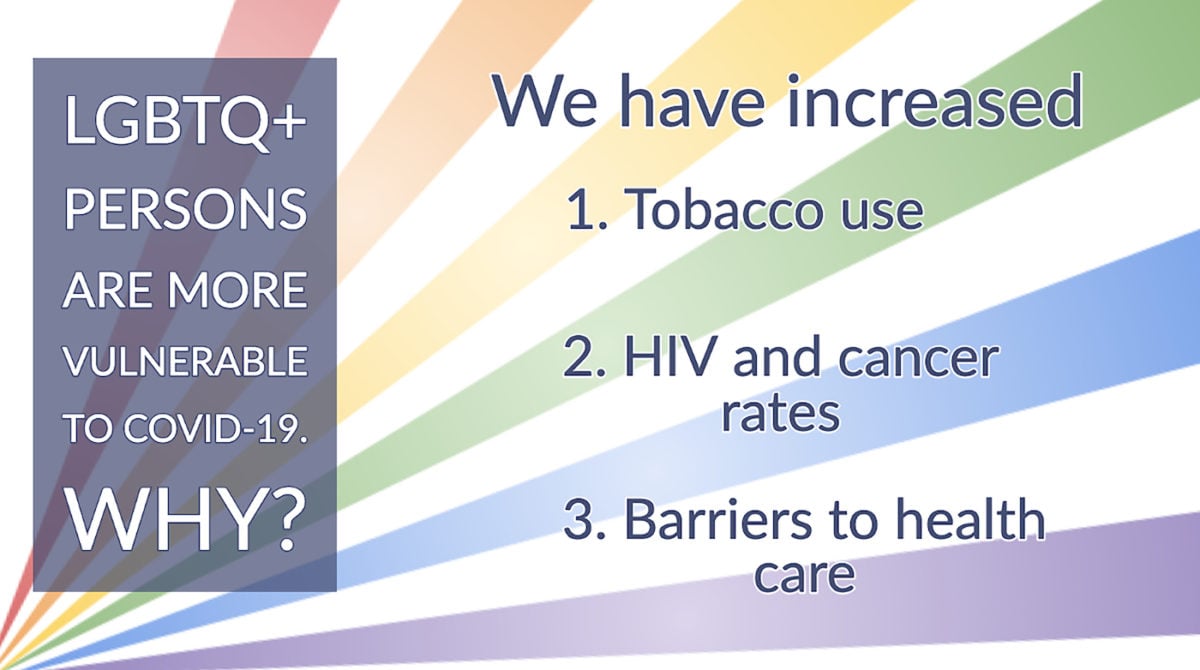
Samples prepare to get tested for COVID-19. Photo: Los Angeles County Department of Public Health.
Everyone knows I’m queer. Except one group of colleagues. Ironically, they’re the ones from my own field — public health professionals.
I work for the National LGBT Cancer Network, a CDC-funded, LGBTQ+ disparity network. I announce I am trans and bi whenever I host a training program for the Network.
But while knowing one trans-bi person may be changing some hearts and minds, what public health officials are largely not doing is collecting health outcome data about the larger communities of LGBTQ+ people.
Data collection important
What does that mean?
We use tobacco at rates that are 50% higher than the general population, and ⅓ of all cancers are caused by tobacco use. But can I give you an overview of our disproportionate cancer impact as a result? No.
Let’s switch to our current public health crisis, the COVID-19 pandemic. An estimated 2.3 million LGBTQ+ people are cigarette smokers. An early study out of China showed smokers were significantly more likely to be severely affected by COVID-19. Can I tell you how many more LGBTQ+ people are being severely affected by COVID-19? No.
In each case, this is because health outcome data for our population is not collected. I’ve looked at the federal case reporting form for COVID-19. It seems to have just enough room to add questions about sexual orientation and gender identity (known by data wonks as SOGI), but they’re not there.

Photo: National LGBT Cancer Network.
Race questions are on that form, and early analysis of those data have shown us irrefutably how discrimination plays out during a pandemic.
On April 1, the Washington Blade reported that New York state would not be collecting SOGI data for COVID-19 cases because “The virus does not discriminate.”
One week later a New York Times headline read: “Virus Is Twice as Deadly for Black and Latino People Than Whites in N.Y.C.” A virus may not discriminate, but preloaded health disparities do and the results can be tragic.
Public officials stumble
There are some regional efforts afoot to change this reality. California Sen. Scott Wiener has spearheaded a letter asking Gov. Gavin Newsom to instruct the state’s 58 counties to collect data about the LGBTQ community. (At a Friday press briefing the governor and Sonia Angell, the director of the California Department of Public Health, did not explain why the data has not yet been collected and offered no timeline for when it will begin – Editor.)
(Also on Friday, at a separate press briefing, Long Beach Mayor Robert Garcia, who identifies as gay, also struggled to offer any explanation why the city’s health department has not been collecting the data and did not say when the department will start- Editor.)
Bradbury Sullivan Community Center in Pennsylvania has spearheaded a similar letter signed by community organizations to their secretary of health.
The reality is, I can count on one hand the number of major hospital systems that include SOGI on their intake forms.
Mandate data collection
We know some people would feel uncomfortable coming out to their health care providers if asked. But, some of us will come out; some of us are able to do that.
When the benefits of data collection once seemed abstract, now they are in vivid focus. This makes now the most compelling time to educate officials about the solution to this problem.
We can never say anything about our communities’ disproportionate impact from COVID-19 until data about us is collected.
Until they give us the option of coming out on intake forms, public health and medical officials are forcing us all to stay in the closet.
